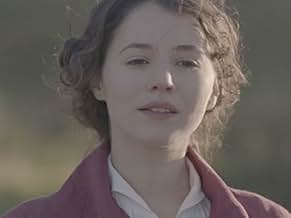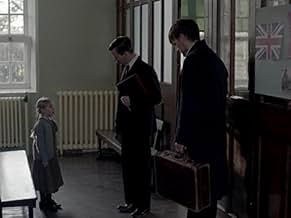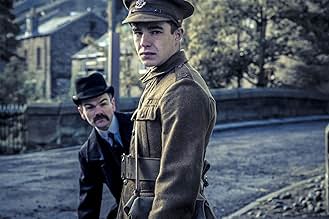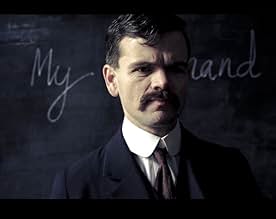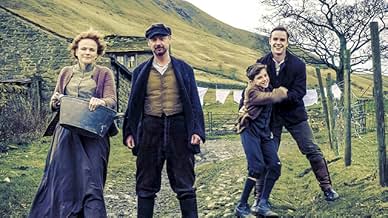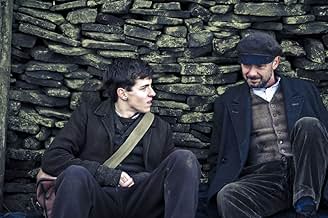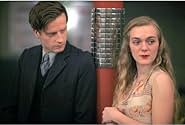Follows the residents of one English village across the 20th century and their turbulent lives.Follows the residents of one English village across the 20th century and their turbulent lives.Follows the residents of one English village across the 20th century and their turbulent lives.
- Nominated for 3 BAFTA Awards
- 6 nominations total
Browse episodes
Featured reviews
I am having withdrawal symptoms from this now having watched the whole series and revisited episode 1.
Yes, it's pretty bleak at times - and it hardly breaks the stereotype of it being a tad grim up North - but then it probably was everywhere let alone Oop North when WW1 broke out- and as a massive John Simm fan, it's tough watching him play this unendearing character. But stick with it, and you are rewarded with seeing some amazing performances unfold. Maxine Peake deserves a special nod for her moving portrayal of Joe and Bert's mum. How much heartache can a woman take??? A lot, it seems.
It's beautifully shot, beautifully acted, almost incessantly grim, but you do care about enough of the characters to want to keep on watching.
I would recommend a second viewing as I am doing now, and enjoying it even more now I know what happens and can just focus on the performances and period detail done as only BBC can.
This is a real winner for me, and I am really looking forward to Series 2.
Yes, it's pretty bleak at times - and it hardly breaks the stereotype of it being a tad grim up North - but then it probably was everywhere let alone Oop North when WW1 broke out- and as a massive John Simm fan, it's tough watching him play this unendearing character. But stick with it, and you are rewarded with seeing some amazing performances unfold. Maxine Peake deserves a special nod for her moving portrayal of Joe and Bert's mum. How much heartache can a woman take??? A lot, it seems.
It's beautifully shot, beautifully acted, almost incessantly grim, but you do care about enough of the characters to want to keep on watching.
I would recommend a second viewing as I am doing now, and enjoying it even more now I know what happens and can just focus on the performances and period detail done as only BBC can.
This is a real winner for me, and I am really looking forward to Series 2.
IN A NUTSHELL: Wonderful cast of talented actors, terrific cinematography. Terrible scriptwriting to the point where at times it's nearly unwatchable.
It would take far too long and too many words to detail what's wrong with this production, and you don't want the spoilers anyway. So I'll give you the mile-high viewpoint, and if you watch, see if you agree.
Above all, this is yet another depiction of the 19th and 20th Century chock-full of spurious 21st Century mores. As if people THEN thought the same way people do NOW. That ruins the historicity of it for me.
The writers are far too intent on preaching modernist socio-political thought to give you an accurate depiction of life in rural England in the 1910s, 20s and 30s.
In every instance of moral dilemma - which after all is what drama is inevitably about - what someone WANTS is always given precedence over what they OUGHT to do from a traditional ethical and moral perspective. In fact, "what one ought to do" is uniformly presented as stunted or even evil. No, you shouldn't honor your marriage vows if you FEEL like doing something else. No, you shouldn't hold fast to your religious convictions, because religion is for nutters. Feel like having sex on the spur of the moment? Go for it; it's what you WANT to do (outmoded ideas of moral fidelity are barbaric anyway).
I watched this because the actors in the drama manage to rise above bad writing and horribly inaccurate social history. The scenes of rural life are breathtaking.
But the story is not. It's maudlin, prissy and factually inaccurate.
It would take far too long and too many words to detail what's wrong with this production, and you don't want the spoilers anyway. So I'll give you the mile-high viewpoint, and if you watch, see if you agree.
Above all, this is yet another depiction of the 19th and 20th Century chock-full of spurious 21st Century mores. As if people THEN thought the same way people do NOW. That ruins the historicity of it for me.
The writers are far too intent on preaching modernist socio-political thought to give you an accurate depiction of life in rural England in the 1910s, 20s and 30s.
In every instance of moral dilemma - which after all is what drama is inevitably about - what someone WANTS is always given precedence over what they OUGHT to do from a traditional ethical and moral perspective. In fact, "what one ought to do" is uniformly presented as stunted or even evil. No, you shouldn't honor your marriage vows if you FEEL like doing something else. No, you shouldn't hold fast to your religious convictions, because religion is for nutters. Feel like having sex on the spur of the moment? Go for it; it's what you WANT to do (outmoded ideas of moral fidelity are barbaric anyway).
I watched this because the actors in the drama manage to rise above bad writing and horribly inaccurate social history. The scenes of rural life are breathtaking.
But the story is not. It's maudlin, prissy and factually inaccurate.
The Oldest Briton looks back on life in a rural English village during WWI, much of which he seemingly learned about through constant lurking and eavesdropping. The usual suspects are all here: indomitable mother, alcoholic father, idealistic preacher's kid, grasping bourgeoisie, scheming parvenu, morally bankrupt upper class scion, disillusioned upper class scion, nutso upper class daughter, conchie, and...brother Joe. It's Joe's story that occasionally elevates The Village, especially in E5. Otherwise, it drifts along comfortably, with nice acting-especially from Rupert Evans and the ever-reliable Juliet Stevenson-disguising the pedestrian screenplay.
Criminally underrated writer/producer, Peter Moffat, showcases his prodigious versatility by following up his brilliant legal drama, Silk, with the equally compelling The Village.
The Village chronicles the lives of the inhabitants of a small country town as they struggle to adjust to the turbulent societal upheaval brought about by the First World War. From the gentry to the poverty stricken working class, the shocking realities behind closed doors belie the idyllic surrounds of the Derbyshire countryside.
The Village is far from feel good entertainment. It's dark themes and gritty period realism creates viewing that is often emotionally harrowing, but undeniably brilliant.
Despite the explosive era in which it is set, the narrative threads of the series are predominately insular and familial, relying on interpersonal relationships to create drama. The results are riveting, primarily thanks to the vast array of intriguing characters and superb performances by the stellar cast. Moffat is a genius at writing fascinatingly unconventional characters that are neither heroes nor villains, but ambiguously grey. Unlike many male writers, he also consistently imbues his shows with multifaceted females roles that are equally if not more dynamic than their male counterparts.
Moffat's leading lady from Silk, Maxine Peake, is the emotional center of the series. Peake remains one of the finest actresses working today and if there is any justice The Village should garner her some long overdue recognition.
http://infilmandtvland.wordpress.com/
The Village chronicles the lives of the inhabitants of a small country town as they struggle to adjust to the turbulent societal upheaval brought about by the First World War. From the gentry to the poverty stricken working class, the shocking realities behind closed doors belie the idyllic surrounds of the Derbyshire countryside.
The Village is far from feel good entertainment. It's dark themes and gritty period realism creates viewing that is often emotionally harrowing, but undeniably brilliant.
Despite the explosive era in which it is set, the narrative threads of the series are predominately insular and familial, relying on interpersonal relationships to create drama. The results are riveting, primarily thanks to the vast array of intriguing characters and superb performances by the stellar cast. Moffat is a genius at writing fascinatingly unconventional characters that are neither heroes nor villains, but ambiguously grey. Unlike many male writers, he also consistently imbues his shows with multifaceted females roles that are equally if not more dynamic than their male counterparts.
Moffat's leading lady from Silk, Maxine Peake, is the emotional center of the series. Peake remains one of the finest actresses working today and if there is any justice The Village should garner her some long overdue recognition.
http://infilmandtvland.wordpress.com/
This is undeniably excellent, even I cried at the end because it was so poignant although I won't give the plot away. What makes this so good is that unlike a lot of normal period dramas that depict the mainly upper classes classes of this period, this looks at almost every aspect of life in the village during this period despite primarily focusing on one particular family.
I had the pleasure of visiting Derbyshire during the summer and was moved at how well it was depicted in this. The entire drama itself actually moved me to the point that it was something that I immediately wanted to see again. It shows that unlike the gloss of Downton Abbey, despite the fact that I do like that, life was actually very brutal for a large majority of people at the time. What makes this equally so moving is the fact that it left me with a certain numbness at the end and moved me to tears as though it reminded me of how precious life is and the beauty of England in equal measure.
I had the pleasure of visiting Derbyshire during the summer and was moved at how well it was depicted in this. The entire drama itself actually moved me to the point that it was something that I immediately wanted to see again. It shows that unlike the gloss of Downton Abbey, despite the fact that I do like that, life was actually very brutal for a large majority of people at the time. What makes this equally so moving is the fact that it left me with a certain numbness at the end and moved me to tears as though it reminded me of how precious life is and the beauty of England in equal measure.
Did you know
- TriviaMusic provided by the University of Salford brass quintet (the same university that Maxine Peake attended).
- How many seasons does The Village have?Powered by Alexa
Details
Contribute to this page
Suggest an edit or add missing content


